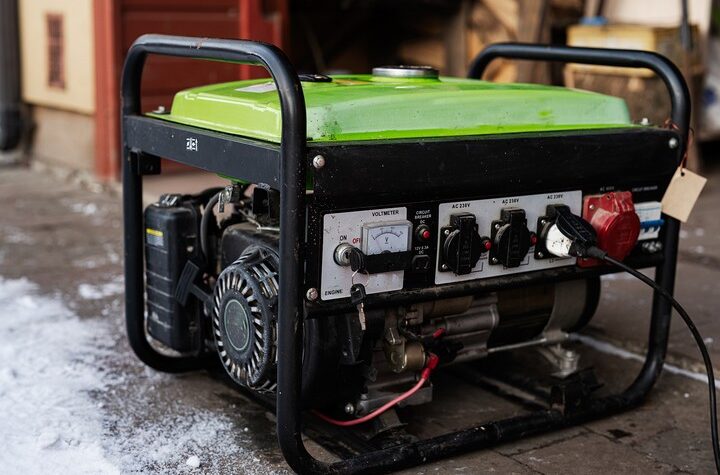There are things in life that you buy but hope to never use, like fire extinguishers. Something more expensive but equally necessary is a generator. It may take up room in your garage or shed, but it becomes your best friend if the power runs out.
The choice between a gas and propane generator is complex. While you may be used to gas-powered units, propane makes more sense in the long run. Fuel storage is much better, operation is quieter, and it is better for the environment. If these qualities mean something to you, consider buying a propane generator for backup emergency use. You will have peace of mind that you are prepared for Mother Nature’s surprise.
Are you looking to buy your first generator or replace an old one? You have options regarding size and features, but the power source is the most significant metric. Let’s examine the difference between a propane generator and a gas generator.
Propane vs Gas Generator – Environmental
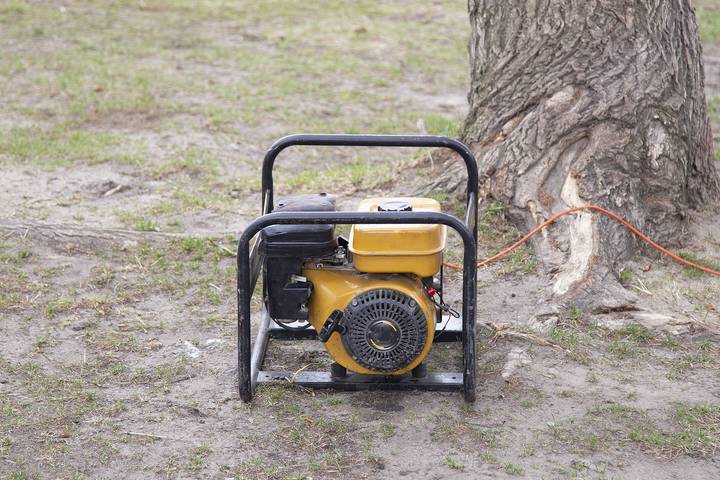
Judging from a save-the-planet perspective, both fuels have an impact. The engine in a generator must run on fuel, but there is a difference in carbon monoxide output between a gas- and propane-powered unit.
Propane is a cleaner fuel because it produces less CO emissions than gas, about 1/2 as much. That makes a big difference when running your generator for a long power outage or as an electrical hub on a job site. In addition to being flammable, gasoline is a liquid that easily spills when refilling and improper storage, pouring toxins onto the ground. Propane is stored safely in a pressurized tank and connected with a hose to open a fuel flow valve. This prevents propane from escaping into the atmosphere.
Propane vs Gas Generator – Run Time
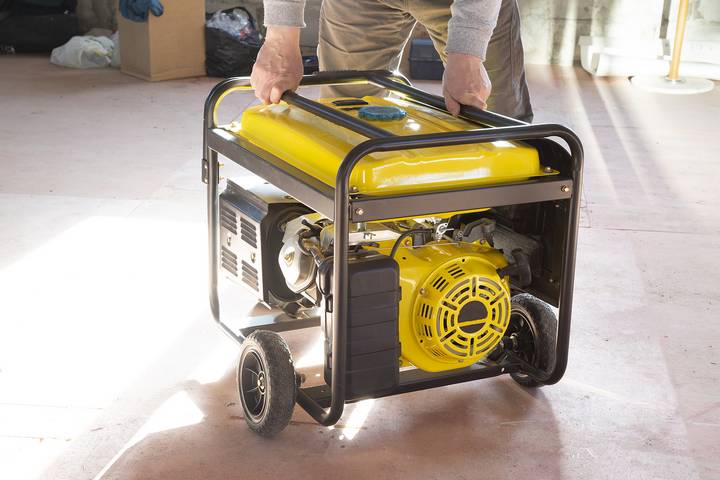
When you operate your generator, it has a finite amount of fuel, and this represents your run time. Propane produces less energy than gas, along with a higher octane rating, making gas better in general run time. Where it balances out is that you must stop and refill the gas tank to keep it operating. You are then susceptible to leakage, spillage and fumes that reduce your overall run time.
Gas will also run your generator at all temperatures. In contrast, propane struggles to operate below freezing point. The fuel will not effectively convert from liquid to gas at very low temperatures. During an emergency, consider propane’s availability. Accessing propane may be challenging in severe weather or disaster situations. Prepare a dependable propane source to maintain seamless generator operation when needed.
Propane vs Gas Generator – Noise Level
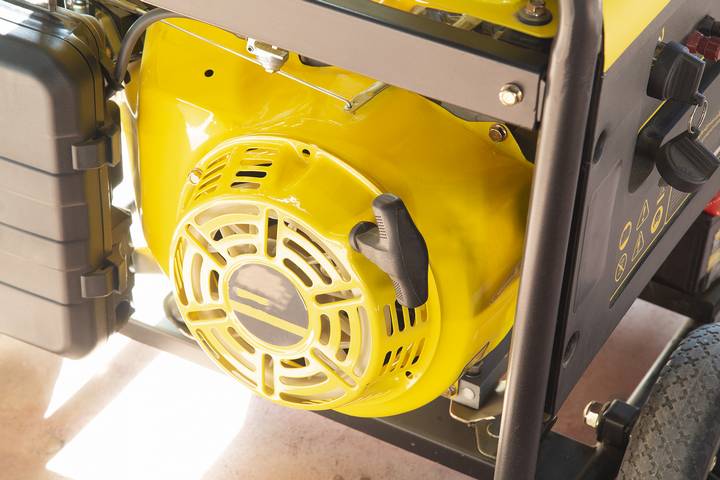
Running any generator produces sound, but constant noise can be annoying, depending on where you place it. With a gas generator, it runs louder at around 80 decibels, which may be your deciding factor. Some campsites restrict gas generators because of excess noise.
In contrast, propane generators are quieter at around 60 decibels. That is approximately the volume of an average conversation. This makes it easier on the ears, especially when it needs to operate for a long time. Noise levels can also fluctuate based on a generator’s specific model and brand rather than just the fuel type alone.
Propane vs Gas Generator – Cost

More people are accustomed to using gas generators. The demand makes gas generators cheaper because of their higher production. They also have a longer shelf life than a propane generator. However, they can degrade faster with residue buildup from burning gas.
Propane generators reduce operating costs in the long term. Due to a cleaner combustion process, these generators are fuel-efficient and require less maintenance. As a result, users can enjoy lower upkeep expenses. Propane prices are also consistent, providing budget predictability. These factors solidify propane’s position as a cost-effective power generation solution.
Uncertain situations, like fuel prices shooting up or an event with no gas, mean you may have to pay much more for fuel or have difficulty finding any. In contrast, propane lets you buy in bulk and store it for a long time. That way, you can avoid price fluctuations or scarcity. Consider monitoring the propane price to secure the best deals.
Propane vs Gas Generator – Shelf Life
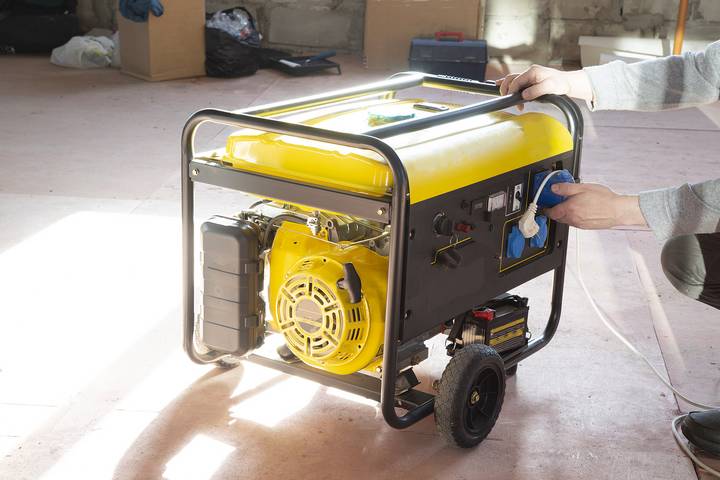
Fuel must be available and stored at home, ready to be called into action when your energy is needed. That means having an extra propane tank or gas can.
Propane can be stored indefinitely and doesn’t degrade quickly like gas. Because of oxidization and evaporation, the gas loses its combustibility in three to six months. You will need to track your usage. Some people use the stored gas in their vehicles to avoid wasting it. Also, gas degrades faster at extreme temperatures, whereas propane has a higher threshold.
Propane vs Gas Generator – Maintenance
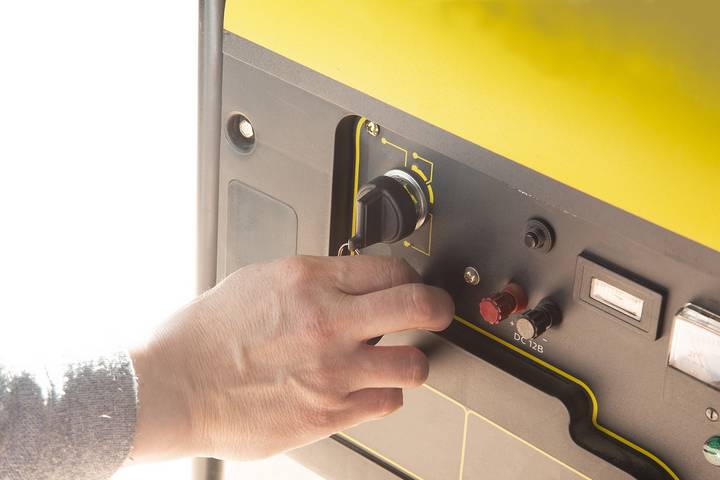
We are all used to a standard combustible engine, and familiarity makes a generator easier to work on. They typically only need the oil and fuel filter changed unless the engine has a problem. Propane generators are more complex, and you may not repair anything yourself. Usually, if there is an issue with your generator, most people will either have a qualified mechanic make the repairs or buy another one.
Propane generators are easy to maintain due to their clean-burning efficiency. Propane’s stability translates to fewer fuel-related complications, leading to decreased engine wear and tear. As a result, users enjoy longer intervals between oil changes and an extended lifespan from their generators.

